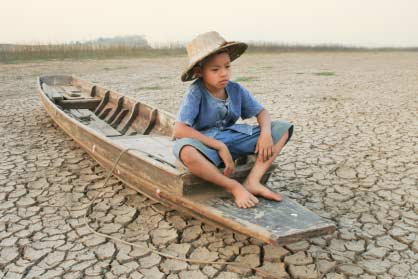
Systematic review of the effects of climate change education on the knowledge, perception and behavior of children and teenagersat a global level
The Climate Change Team of the Youth Observatory (Universidad del Rosario -Earth System Science and Psychologyprograms) and University College Cork –Prof.Dr.Benjamin Quesada, Luisa Ramírez, Sara Cadavid, Sergio Barbosa, Juan Gabriel Ocampo and James Richardson.
Researcher 10 months – 9 million COP/month (Provisionof services)
Close
29/01/2023
Document reception deadlineRequisitos para aplicar
Profile
Professional with master's and/or a PhD, with proven experience in research through scope reviews, systematic reviews and/or meta-analysis. Profiles of people with studies or research experience in areas such as Education Sciences, Psychology, Medicine, Environmental Studies, Statistics, or similar will be considered.Competencies in reading and analyzing scientific literature in English are indispensable. Practical and operational knowledge of English is also necessary,and knowledge of French, German or Portuguese will be highly valued. Interests in the specific topic and global climate-environmental issues are valuable.
It is expected that, with the joint and complementary work of another project researcher andthe working team, the contracted person will participate in the drafting of a publication in an international journal, in the drafting of Policy Brief for the AFD and in the socialization of the results to a wide audience for this topic of pressing news, before COP28. The contracted person will be author of all documents produced in the framework of the investigation. Work will be done in close collaboration with AFD, the Office for Climate Education and the Climate Change team at Universidad del Rosario in Bogotá (Colombia).Theresearch will be carried out for 10 months for service provision, starting as soon as possible (15 February 2023). The monthly remuneration is 9,000,000 Colombian pesos through a service contract (total contract value: 90 million pesos).
Send a complete detailed Curriculum Vitae+ motivation letter in ENGLISH presenting the profile and justification of the ability to perform the work (e.g., articles under the format of systematic review, meta-analysis or scoping review published or submitted), as well as achievements, projects and studies related to the subject to Prof. Dr. Benjamin Quesada ( benjamin.quesada@urosario.edu.co) and Prof. Dr. Luisa Ramírez (luisa.ramirez@urosario.edu.co). For full consideration, document reception deadline: no later than January 29, 2023.
Description
Supervisors: The Climate Change Team of the Youth Observatory (Universidad del Rosario -Earth System Science and Psychologyprograms) and University College Cork –Prof.Dr.Benjamin Quesada, Luisa Ramírez, Sara Cadavid, Sergio Barbosa, Juan Gabriel Ocampo and James Richardson.
The Paris Agreement on Climate Change calls “to enhance Climate Change Education [CCE], training, public awareness, public participation and public access to information”. Sustainable Development Goal #13, objective 13.3 mentions to “improve education, awareness-raising and human and institutional capacity on climate change mitigation, adaptation, impact reduction and early warning”. Moreover, the IPCCrecently pointed out that “given the amount of time that children spend in school settings, adapting educational infrastructure and programmes to climate change is highly important”. However, education is often not sufficiently integrated into mitigation and adaptation policies across Parties and not still sufficiently validated to follow best effective practices.
Moreover, the impact of Climate Change Education on the perception, knowledge and behavior of school-age children and adolescents has not yet been systematically assessed globallyand the combination of interventions and strategies thatthey would effectively improve individual and collective mitigation and adaptation. Within the framework of the call by the French Development Agency (AFD) in collaboration with the University of Rosario (Colombia) and the University College Cork (Ireland)(https://www.afd.fr/en/call-expressions-interest-research-systematic-review-education-ecological-transitions), using the guidelines of the Joanna Briggs Institute and a PIO framework (where the P population, I interventions and O outputs of interest will be defined thoroughly to ensure the systematicity of the review), this research study aims to answer the following questions: (1) What curricular and extracurricular activities are used to teach climate change mitigation and adaptation? (2) What activities and intervention strategies (e.g. project, course...) influence a. perceptions, b. awareness, c. behavior in school children and their environment. (3) How do curricular and extracurricular activities/strategies contribute to creating different mitigation and adaptation responses based on age group/gender/countries/socio-economic/cultural environments?
Perfil detallado
- Tener título de pregrado en antropología, historia o afines con experiencia en memoria cultural y/o sostenibilidad
- Contar con:
- Al menos un año desde obtención del título de pregrado
- Conocimientos requeridos en:
- etnografía y entrevistas en comunidades marginalizadas
- economía ecológica / comercialización de productos naturales dentro de contextos de conservación
- interés en el área de metodologías y métodos de investigación participativa inter- y transdisciplinaria
- No tener inconvenientes de tipo legal, ético o disciplinario.
- Disponibilidad para trabajar mínimo un año en el proyecto.
- Demostrar solvencia en al menos dos de los siguientes:
- Conducción de entrevistas
- Relaciones de investigación equitativas y respetuosas con la comunidad pesquera artesanal puebloviejeño o comunidad asimilares
- Análisis y presentación de datos cualitativos
- Tener habilidades en:
- Capacidad para construir dialógicamente los resultados de experiencias mutuas entre equipos distintos de los hilos de investigación del proyecto y entre el equipo científico y la comunidad
- Liderazgo
- Redacción de informes científicos y texto académicos
- De lectoescritura
- Organización logística
- Pensamiento crítico
- Trabajo en equipo
Place
Universidad del Rosario
Online application
Dr. Benjamin Quesada ( benjamin.quesada@urosario.edu.co) and Prof. Dr. Luisa Ramírez ( luisa.ramirez@urosario.edu.co).
